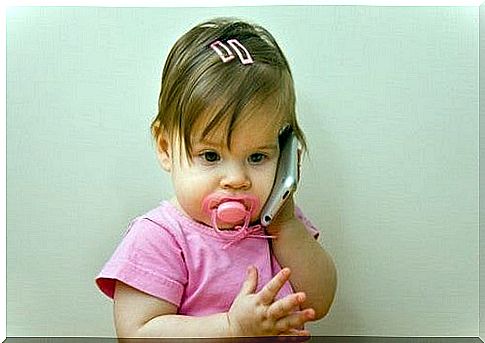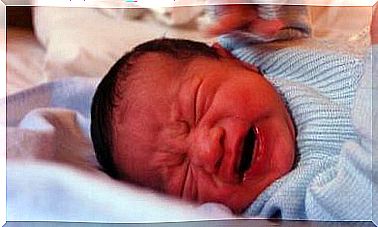If Your Child Is Not Talking Yet: Should You Be Worried?

As a parent, it is a typical concern if your child is not talking yet and if he can barely utter any words. So what should you do in this case if your child is not talking yet ?
It is true that there is an average age at which children should be able to say their first words.
However, each individual develops at their own pace, and this does not necessarily affect their development.
From an early age, humans manifest conditions that will reveal the perfect order of their natural development.
For example, we search for voices with our eyes, we chat spontaneously, laugh, etc. These, and other signals, are indications that there are no problems with speaking or hearing.
Many times it is the upbringing that is the reason why your child does not speak yet or pronounce words correctly. In other words: your child may exhibit this behavior due to laziness.
Despite this , there is still an inner voice that says, “My child is not talking yet.” This can be quite unsettling for parents. It’s hard to believe it’s just a whim on the part of their child.
The result is that they wait a long time before consulting a specialist and getting a diagnosis.
If your child is already two years old and can only say a few words – if any at all – it’s time to talk to your pediatrician. Your child’s doctor will be able to examine your child’s development.
It is extremely important to get an early diagnosis. Many times, a delay in speech development can be a sign of a bigger problem.
Parents must be involved throughout the process so that the language stimulation can be positive for the children.
Reading stories or constant conversations during the day strengthens communication from an early age. The result is that children improve their speaking skills.
Suggestions for parents with children who have speech difficulties
The role of parents should be active. If your child is not talking yet, get involved and participate in the process of developing this ability.
- Children learn languages by listening to others speak around them, mainly by imitating. You will always be their best example. Speak slowly and clearly.
- Spend quality time communicating with your children. Speak to them from birth and as they grow so they can mimic your sounds.
- Do not celebrate it if your child makes phonetic mistakes. You may end up amplifying this error without noticing it.
- Play. For example, teach your child the different animal sounds. You can also imitate different vehicles: cars, trains, motorcycles, fire trucks, etc.

Signs that your child may have speech difficulties
When to worry when the child can not articulate? Notice the following signals:
- If your baby is 12 months old and not yet using gestures such as waving hello and goodbye.
- If your son or daughter is 18 months old and does not understand words, or does not make sounds.
- If your child is 24 months old and still cannot put together simple sentences, or only makes sounds.
If your child is not talking yet: The most common reasons
Oral factors
Problems with a child’s mouth, tongue or palate are very common causes of speech delay. So if your child exhibits speech delay, take him to a specialist in this area.
Auditory factors
If children have hearing problems, they may also have difficulty understanding the language around them. For this reason, they can make mistakes when pronouncing words.
Oral motor factors
Sometimes there may be a problem in an area of the brain that is responsible for articulation of speech. The result is a lack of coordination between tongue, lips and jaw.

When should I take my child to a specialist?
It is common for parents not to realize that there is a deeper problem when they ask themselves why their child is not yet able to speak.
But once they understand that their child needs professional help to overcome the problem, it becomes much easier.
In most cases, your child’s doctor can examine the child and identify the underlying reasons for the speech delay. Once the doctor isolates the cause, he or she can give you a referral to a specialist.
An early intervention by a speech therapist will help your child develop positively.
Speech educators are responsible for diagnoses, prevention, and treatments that are related to speech and language. During treatment, he or she will perform therapeutic exercises to improve your child’s language skills.
He or she will also give you exercises that you can do with your child at home to make the treatment more effective.









